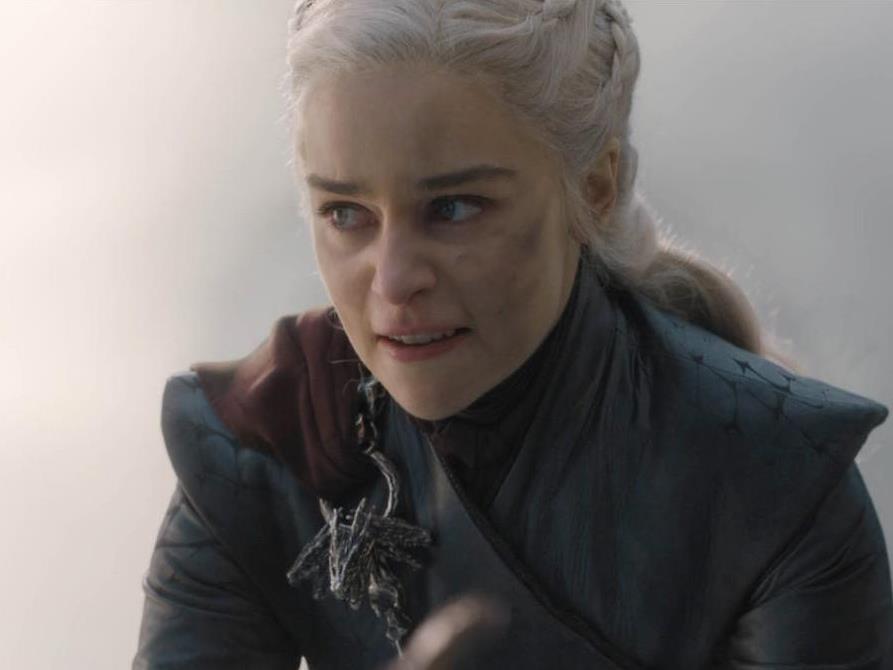Image: Exiled princess cum Queen Daenerys Targaryen in Game of Thrones. Source: Foxtel.
[Note: This piece is largely spoiler-free, though links may contain spoilers.]
Game of Thrones has at last finished its run. And after nine years and eight seasons, HBO’s medieval fantasy TV series – which screened in Australia on Foxtel Showcase – has become a cultural juggernaut. It is hard to escape its imagery of chivalric sigils and banners. Surly, greasy-haired people in fur-draped cloaks, velvet dressing gowns, leather jerkins and armour. Scenes in chilly, darkened castles, green hills and forests, snowscapes, deserts and gardens of betrayal. Catchphrases like “Winter is coming”, “You win or you die” and “The night is dark and full of terrors”.





